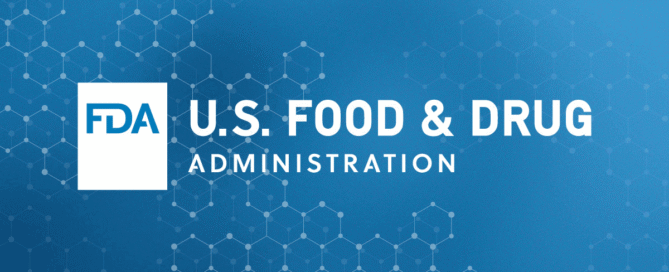Mandatory GRAS notifications likely coming – here’s what you need to know!
Mandatory US FDA GRAS Notifications - the US FDA has signaled a major shift: moving the GRAS pathway from voluntary notification to mandatory notification. In its Spring 2025 Unified Agenda, FDA previewed a proposed rule that would require companies to submit notices—and safety data—whenever they conclude a substance is GRAS for use in human or animal food. Exemptions would apply to uses already listed/affirmed by regulation or covered by a prior FDA “no questions” letter. An NPRM is targeted for October 2025. Why this mattersSince 2016, FDA has “strongly encouraged” but not required GRAS notification, maintaining an inventory of voluntary submissions and responses. A mandatory regime would upend the current practice of self-affirmation without notifying the agency. This is expected to lead to higher transparency, more uniform dossiers, and a public paper trail for new GRAS determinations. What to anticipate: Portfolio triage: Any self-affirmed GRAS conclusions not previously notified may [...]
DEA and Prop 65: What 1,211 Notices of Violation Say About Cosmetic Compliance Risks
Over the last 16 months, 1,211 Notices of Violation (NOVs) have been issued under California’s Proposition 65 (Prop 65) for cosmetic and personal care products in relation to Diethanolamine (DEA)—a chemical listed by the state as a carcinogen. This volume of enforcement highlights a serious and ongoing compliance issue that many companies in the cosmetics space may be underestimating. Why DEA Is a Problem Under Prop 65 DEA is commonly used in cosmetics as an emulsifier or foaming agent. It can appear as an intentional ingredient (like in cocamide DEA), or it may show up unintentionally as a contaminant in raw materials or during manufacturing. OEHHA added DEA to the Prop 65 list due to evidence of carcinogenicity, which triggers product warnings when exposures are above established safe harbor levels triggers warning requirements. The problem is that OEHHA has not published an SHL for this chemical, leaving companies to figure [...]
US Cosmetic MOCRA Services for Foreign Companies
New Requirements for Cosmetic Products Sold in the U.S. As we discussed in a previous update, there are new requirements for all cosmetics sold in the U.S. Cosmetic companies must register their facilities with the US FDA, as well as upload a listing of all products consisting of the type of product and formulation. These requirements also apply to companies that are outside of the U.S., but these companies must designate a U.S. agent as an intermediary. The regulation also incorporates other new requirements, as well as exemptions for small businesses. Mandatory compliance was established for July 1, 2024 for existing companies, but new registrations/listings are required on an ongoing basis. RegTox Solutions provides all necessary services related to cosmetics/beauty products and compliance with MOCRA, including: obtaining FEI number and registering your facility, listing all products, acting as U.S. agent for foreign and domestic companies, product label reviews, product safety [...]
California Cosmetic Regulations: CPSA and CFFIRKA
Many cosmetics companies are familiar with the need to comply with California Proposition 65 regulations for their products, but are you aware of the the over-arching and new regulations that apply to cosmetics sold in California? The California Safe Cosmetics Act of 2005 (CSCA) requires manufacturers, packers, and/or distributors of cosmetic products to report to the California Department of Public Health (CDPH) all products sold in California, which contain ingredients known or suspected to cause cancer, birth defects, or other reproductive harm (as well as certain environmental toxins). This is established based on numerous "designated lists" published by various authorities. For some chemicals, any presence of the chemical (like 1,4-dioxane) triggers reporting requirements. These can be submitted to the CDPH via its online portal. Small businesses with less than $1 million of annual aggregate sales of cosmetic products are exempt from this reporting requirement. More recently, the Cosmetic Fragrance and [...]
New US FDA MOCRA Update for Cosmetics (September 2023)
The US FDA has published new information regarding the MOCRA facility registration and product listing requirements, including: screenshots/overview of the electronic submission portal ("Cosmetics Direct") [this is not online yet, expected in October] how to obtain a "FDA Establishment Identifier (FEI)" for your business (which will be required prior to registering your facility through "Cosmetics Direct" [this can be done now] drafts of the electronic/paper forms (can be used but electronic submissions are highly encouraged) request for comments from stakeholders on the above. If your company requires any assistance in getting ready for these MOCRA requirements, please reach out directly! RegTox can support your MOCRA requirements: obtaining FEI facility and product listing agent support
US FDA Publishes MOCRA Guidance Document (August 2023)
The US FDA has recently published an additional draft guidance document called "Registration and Listing of Cosmetic Product Facilities and Products: Guidance for Industry" as it relates to the cosmetic regulation overhaul under MOCRA. Although companies around the world are eagerly awaiting details about how to comply with MOCRA for their products sold on the US marketplace, there is still much to learn! The FDA stated that the electronic facility registration and product listing portal will only be available in October (there will be a paper format as well). Until then companies can assess whether they are eligible for any exemptions (i.e., small business, etc) and prepare by compiling relevant information for The guidance otherwise, provided definitions, exemptions, and a Q&A format explanation of some of the requirements. Stay tuned for further MOCRA guidance updates!






